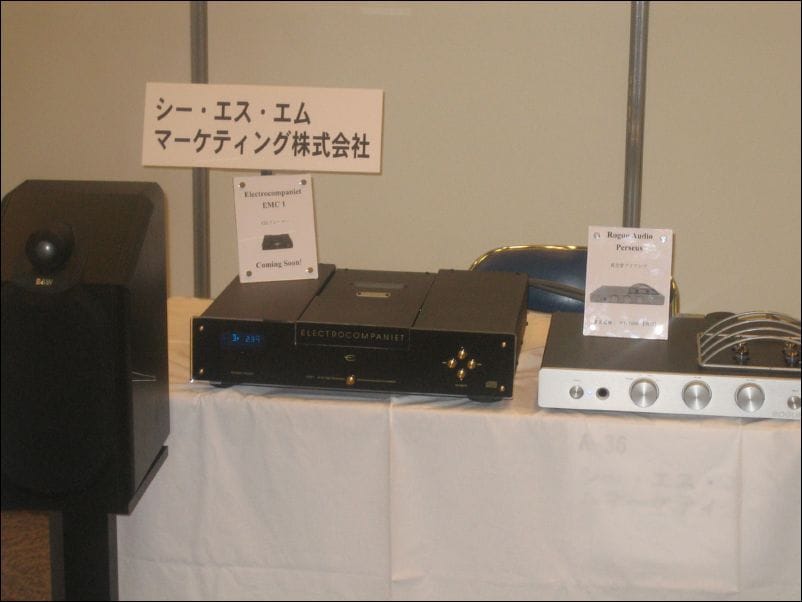
“Self-discipline begins with the mastery of your thoughts. If you don’t control what you think, you can’t control what you do.” — Napoleon Hill
I am starting a series as part of The Day Warrior Newsletter dedicated to helping you transform your life in just six months.
Whether you want to boost your career, enhance your well-being, or cultivate new habits, I will provide you with the tools, insights, and support you need to achieve your goals.
The first topic I would like to cover is mastering the art of self-discipline.
Discipline is a foundational element for personal and professional growth. It helps you achieve your goals, build good habits, manage time, and enhance overall well-being.
The most basic example of discipline might be getting up early each day, working long hours to accomplish one's goals, and facing one's problems head-on.
Most people fail at self-discipline due to a lack of clear goals, inconsistent habits, and the temptation from short-term dopamine hits. It is easier to binge-watch Netflix for the day than to get the exercise you should be getting instead.
Discipline is the bridge between sovereignty and personal success. It transforms dreams into reality, providing the foundation for self-governance and achieving your highest potential.
I myself am a work in progress and developing method to improve my self-disciple, but I would like you to walk away with the following concepts after reading this newsletter:
Create Effective Systems
Prioritize and Execute
Build Positive Habits
Embrace Ownership
Monitor and Adjust
Let's get started.
Create Effective Systems
Many people focus on setting goals.
Goals are great for setting direction, but they can also prevent a person from ever getting started if obtaining the goal feels like mission impossible.
I do not want to discuss the pros and cons of systems vs goals in this newsletter, but if you want to learn more, read the linked newsletter.
For this newsletter, I will state that effective systems create a structured approach focusing on consistent, repeatable actions rather than specific goals. These systems help drive discipline, not a focus on goals.
This process involves creating systems from habits and routines that are directionally aligned to your long-term goals. You break things down into smaller, manageable steps and try to integrate them into your daily life. The goal is to form repeatable habits that become second nature and drive you towards an incremental path of improvement.
The most common example is having a goal to lose weight.
"I want to lose 30 pounds."
That is a goal.
The system would be all the small, repeatable steps that get you and keep you there.
Most of us have gone down this path. We spend six months starving ourselves on a fad diet and watching the scale week after week. After six months of binge dieting, we met our goal only to rebound to a weight worse than when we started.
This pattern is familiar to everyone.
The idea of creating effective systems is different.
The goal might be the same, but how we accomplish it differs.
You might start small. You read somewhere that walking is excellent for losing weight. Step one is to start walking every day.
At first, you walk for fifteen minutes a day.
Then, you expand to thirty minutes.
Then you increase to forty-five minutes twice a day.
Then, add a step monitor and get hooked on hitting at least 15,000 steps daily.
Then you have a thirty-day streak, a hundred-day streak, and a 365-day streak.
You have created a walking habit. You are hooked on walking. Even in the rain, sun, or snow, you will find a way to complete your daily walking. The habit has been formed.
What is your new weight after implementing these new habits? Maybe it has not changed yet, but you have created one unbreakable system of habits directly aligned with your goal to lose weight.
What is next? How about eliminating sugary drinks from your diet?
How about reframing alcohol as a poison and eliminating it from your diet?
As these two items become established, you can expand to intermittent fasting.
None of these items alone will lead you to weight loss, but by breaking the goal of losing weight into manageable steps and integrating them into daily life, you are creating the necessary discipline and knowledge to obtain and maintain your goal.
The following items can be used as a guideline to define the critical elements of an effective system.
Clear Processes. A simple process is the easiest to form a habit around. Complexity is not your friend when establishing a new system or process. The processes should be simple to follow and easy to execute consistently. "I will read three books a week" is not easily repeatable and is challenging to perform consistently. "I will read fifteen minutes a day" or "I will read fifteen pages a day" is a more simplistic process that is easier to execute consistently.
Habit Formation. Sound systems develop habits that support your goals. Habits are good because they reduce your need for willpower. Habits create behaviors that become automatic over time. My current three-year average of nearly 15,000 steps daily is the best example. Historically, walking was an intentional exercise or an effort to get from point A to point B. Over time, I turned walking into an enjoyable event that has formed into a daily habit. I have not missed a day in almost two years. It is now an automatic activity. I started small, and it has developed into an automatic "must-do" and enjoyable daily habit over time.
Small, Manageable Steps. Trying to accomplish significant milestones quickly to achieve their goals is where many people will not be successful. They try to make their system very complex with challenging daily milestones. Consider a system that requires that you write three blog posts a day versus a system that tries to form a habit where you write thirty minutes a day. Do you see how one can quickly lead to failure or burnout? Anyone can find thirty minutes a day. If practiced consistently, that same thirty minutes a day will lead to the same output as the three blog posts a day without burnout. To implement a successful system, break down your larger tasks into smaller, actionable tasks. Grab the small wins where you can. By breaking things into smaller manageable statements of work, things become less overwhelming, and tasks are easier to complete, creating a sense of accomplishment and progress.
Consistency. Any effective system requires consistency. Regularly practicing the steps in your system reinforces the habits you need to ensure steady progress toward your goals. The more practice and experience you create, the easier it is to maintain self-discipline and focus on the key activities that will bring success.
Accountability. Incorporate things into your system that help you maintain accountability. You can use tools that track your progress or tap the shoulder of a trusted friend to hold you accountable. For me, it is the three magic rings on my Apple Watch: Move, Stand, Exercise. At the time of writing this newsletter, I have closed those darn rings 515 days in a row. Find something similar that works for you. It does reinforce the execution and consistency of the systems you are trying to implement. My example gives me daily and real-time feedback. It is a daily win that I celebrate each time those rings close.
Flexibility & Adaptability. The key to any good system is its flexibility and adaptability as needed. It is in the daily execution of the habit you are forming that you are also building real-world experience that you need to become successful. As you build this experience, you learn what things help you towards your goals and which are ineffective and should be eliminated. The flexibility in your system is what ensures that the system remains relevant and effective over time.
“Focus on the journey, not the destination. Joy is found not in finishing an activity but in doing it.” — Greg Anderson
Focus on the Process, Not Just Outcomes. Many people are so focused on the outcome that they forget that the journey is the most important part. It is the journey where we execute, make mistakes, overcome obstacles, and create. Emphasize the importance of the process over specific outcomes. Focusing on the daily tasks you need to accomplish removes the stress and pressure of meeting your goal. This makes it easier to stay disciplined and enjoy yourself along the way.
Prioritize and Execute
I am also an audiophile. I love listening to my music using fancy, usually expensive audio equipment.

While pursuing dream number one, living and working in Japan, I decided, "Why not complicate things further by pursuing another dream simultaneously?" That added dream was to start an audio import business in Japan.
This was a steep task. I had no product to sell, no contacts in the market to support and service what I wanted to sell, and I needed to learn how to form the Japanese version of an LLC.
There were many barriers to entry.
Opportunities to make mistakes were high.
The only way forward was to prioritize what I needed to accomplish and get started.
The list of things I had to accomplish, in some form of priority, looked like the following:
Figure out how to form a company in Japan. I researched the heck out of this. I found a method where I could establish a Limited Liability Company (LLC) in the United States and then a Godo Kaisha (合同会社) in Japan. This worked out better because I could then do business in both countries.
Find products to sell. This was much easier than expected. Companies love to find people who can sell their products to them in other countries. I contacted several United States and Europe companies and established exclusive resale/distributor agreements with Electrocompaniet and Rogue Audio.
Get the product approved for the Japanese market. It is not easy to bring Electronic products into Japan. I do not want to bore my readers, but Japan requires a PSE mark. The PSE mark is a mandatory safety and EMC (Electromagnetic Compatibility) indication for electrical and electronic products sold on the Japanese market. Japan's Act on the Safety of Electrical Equipment and Materials (DENAN) is the applicable law. The Japanese Ministry of Economy, Trade and Industry (METI) is responsible for PSE certification. I worked through the Japanese bureaucracy and got all the products I imported into Japan approved!
Create a website. This part was relatively easy, as I come from an information technology background. It was my first time creating an English and Japanese website. I had to work through producing content that kept the companies whose products I was representing happy, along with my Japanese resellers.
Market my product. This was also surprisingly easy and an exciting experience. Japan has several popular print-form audio magazines, such as Audio Accessory and Stereo Sound. I secured several magazine reviews for the Rogue Audio products I was importing. This was another example where just taking action produced results. I just had to overcome my fear of failure. I reached out to the magazine companies and secured several product reviews. Below is an example of some of my early attempts at creating marketing material for my company in Japan.

CSM Marketing LLC, October 2006

Japan AV Festa, October 2006
My Japanese company produced about $70,000 in sales in the first year.
My efforts were successful because I identified the most critical tasks and tackled them first.
As a foreigner trying to find my way in Japan, starting a business was overwhelming.
By breaking down the complicated task of starting a business in Japan into smaller, manageable steps, I could complete them one at a time while maintaining focus and preventing myself from being overwhelmed.
Again, sorry to bore you with my life story above.
The following can be practical steps to prioritize, execute, and become more disciplined.
Identify Goals. Clearly define your short-term and long-term goals. This provides a direction and purpose for your tasks. For example, determine whether your goal is to improve fitness, advance in your career, or enhance personal development.
Break Down Goals into Tasks. Sometimes a goal can feel overwhelming. Sometimes, the goal can be so big that it feels unachievable. A way to deal with this is to break your goals into smaller, more manageable tasks. For example, suppose you want to lose 30 pounds and improve your overall fitness. In that case, you might break this down into smaller tasks like daily walking, creating workout schedules, meal planning, or installing programs on your mobile device to track progress.
Prioritize Tasks. Try proven methods such as the Eisenhower Matrix to categorize tasks into urgent and important, not urgent but important, urgent but not important, and neither urgent nor important. Try to focus on tasks that are both urgent and important, followed by those that are important but not urgent. A key here is not to procrastinate. Get your work done ahead of time to avoid the pressure of deadlines. An example of prioritizing your work would be to complete a key project deadline instead of attending a non-critical meeting.
Create a Plan. In order to know where you are going, you need to create a plan. Create a clear plan of what needs to be done, when it needs to be completed, and the optimal execution order. You can use many tools, like to-do lists, planners, and digital task management solutions. Create a weekly schedule on Sunday nights that includes the designated times for your critical tasks for the following week. You can also do this daily before you go to bed each night to start each new day with extreme focus and discipline.
Execute with Focus. Remain focused. There are so many opportunities for distractions to sneak in and pull us away from our work. Commit to completing each task with your full, undivided attention. Eliminate distractions. Find a space that allows you to focus your attention on the tasks at hand. Dedicate uninterrupted time to the work you need to get done. I like to work early before everyone wakes up. On weekends, I know that my kids will wake up early, so I spend the morning at a local coffee shop to ensure I finish my work. There is plenty of time to play with my kids later.
Another example would be turning off notifications on your electronic devices and setting a timer for focused work sessions. There are plenty of timed focus applications to set specific timed working sessions. Try 25 minutes of focused work and a five-minute break (Pomodoro Technique).
Review and Adjust. No plan of action is set in stone. As we become more experienced, we must review and adjust our plans. You have to review your progress and adjust your plans as required. Learn from things that work well, and also learn from the mistakes you make. The mistakes we make on our journey build critical life experiences, preparing us for the next challenge we will face. Maintain a journal. At the end of each week, evaluate your progress. Review both your accomplishments and mistakes and identify areas to improve. It is okay to adjust your plan based on new experiences and results.
Stay Accountable. Holding yourself accountable is a critical factor in being successful. You have to hold yourself accountable for getting work done and completing tasks. If you cannot do it yourself, find a mentor, close friend, or an accountability partner. Use tracking or self-accountability tools to remain focused. Exercise tracking tools are great at tracking progress and holding yourself accountable. Some tracking tools even let you share the results with friends and others who can help keep you focused. At the end of the day, you are truly responsible for your results.
Develop Consistent Habits. To develop consistent habits, create routines that support your goals and tasks. Consistency in your daily habits makes it easier to stay focused and reinforces discipline. For example, instead of doing things at random times each day, set a regular time for reading, exercise, writing, study, or any other work-related habits you want to complete and become more disciplined.
“Success doesn’t come from what you do occasionally, it comes from what you do consistently.” — Marie Forleo
By following these steps, you can effectively prioritize the work you need to complete and execute the critical tasks that will make you successful.
At the end of the day, the more disciplined you become in not being distracted and instead focusing on execution, the better your chance of success will be.
Next week I will complete this article and cover three more topics:
Build Positive Habits
Embrace Ownership
Monitor and Adjust
The Day Warrior
How to find more content from The Day Warrior:
If you enjoyed this newsletter, please subscribe.
If you want to provide feedback, please take The Day Warrior Survey.
If you want to have a deeper discussion about this subject, please get in touch with The Day Warrior.
Follow me on X for daily short and long-form content: @thedaywarrior.
My LinkedIn information is here: https://www.linkedin.com/in/the-day-warrior/
I am also on Instagram: @thedaywarrior.
My website is http:/thedaywarrior.com.
"Never blindly accept what you read online. Always challenge it with an open and critical mind."
